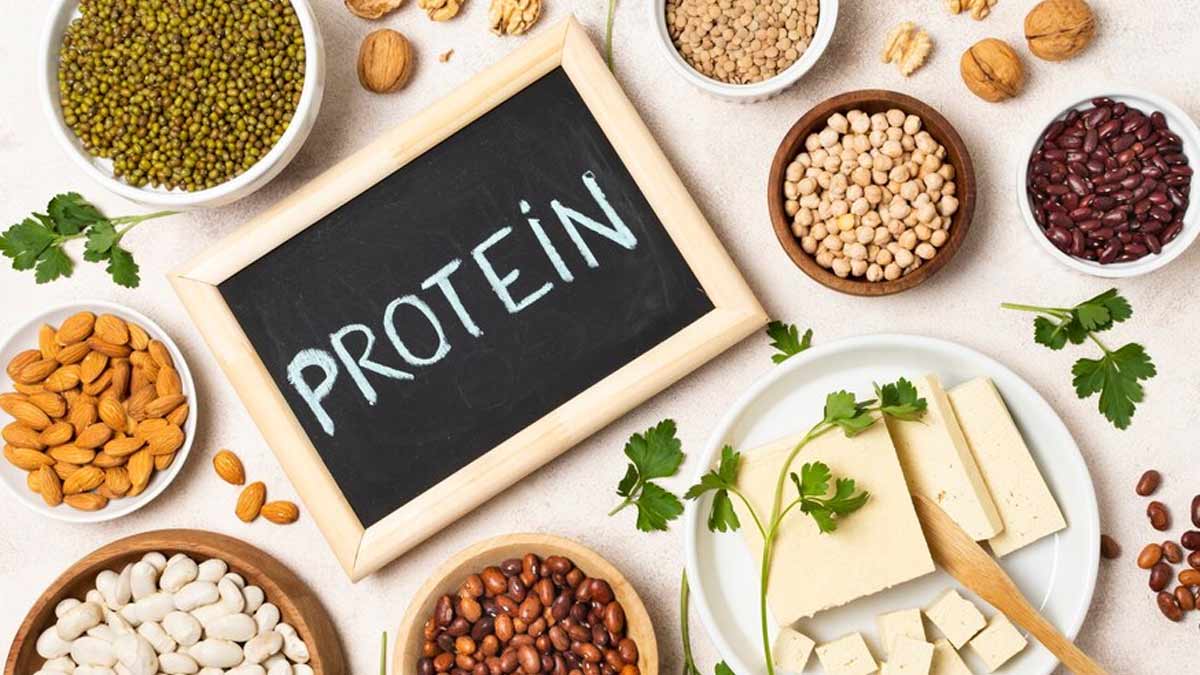
Protein is an extremely important macronutrient that helps repair and build the body's tissues. It provides energy to the body, balances fluids, and also helps boost the immune system.
On average, a healthy individual should get at least 10% of their daily calories from protein, but not more than 35%. However, as we age, our protein requirements change, with older adults needing more protein than younger adults. This is because protein tissue turnover declines with age. In an interaction with the OnlyMyHealth team, Vedika Premani, Clinical Dietitian, Sir H.N. Reliance Foundation Hospital, delves deeper into the conversation and shares how people can get optimum levels.
Table of Content:-
Also Read: Protein-Rich Foods That Help Reduce Your Risk Of High Blood Pressure or Hypertension
How Your Protein Requirements Changes With Age![]()
According to Premani, protein requirements vary depending on an individual’s activity level, age, and health condition.
For people in their 30s who engage in regular exercise, the need for protein is generally higher compared to sedentary individuals of the same age, she notes. This is because physically active individuals, especially those involved in strength training or endurance sports, require more protein to repair and build muscle tissue.
Additionally, protein also supports recovery and helps maintain lean muscle mass, which is crucial for overall strength and performance.
In contrast, older adults may not need as much protein unless they are maintaining an active lifestyle. However, older adults may still require sufficient protein to prevent muscle loss, a condition known as sarcopenia, which becomes more prevalent with age.
For sedentary individuals in their mid-40s or 50s, protein needs might be lower as their activity levels are lower compared to those who exercise.
However, despite a decrease in physical activity, middle-aged and older adults should still consume adequate protein to support basic bodily functions and maintain muscle mass.
According to a 2016 study published in the journal Nutrients, while the Recommended Daily Allowance (RDA) is 0.8 g/kg/day, experts suggest 1.2-2.0 g/kg/day or more for older adults.
This is because older adults may need more protein to stimulate muscle protein synthesis and prevent breakdown, researchers noted, adding that the quality of protein is also important, with animal protein being more beneficial than plant protein.
Also Read: Weight Loss Diet: Add These 10 High-Protein Fruits To Lose Weight
Signs Of Protein Deficiency![]()
Several signs and symptoms can signal low protein levels in the body. These include:
- Higher risk of infection
- Increased risk of fractures
- Brittle nails, hair, and skin
- Muscle loss and weakness
- Stunted growth
- Oedema, or buildup of fluid in the body
Rich Protein-Sources For Older Adults
Premani says, “It is crucial to understand the significance of high-quality proteins, especially for older adults.” She emphasises having foods rich in High Biological Value (HBV) proteins, which include lean meats like chicken and fish and dairy products. Other protein sources include plant-based foods like dals, pulses, and nuts.
HBV proteins contain the essential amino acids that the human body needs in the right proportions. These proteins are absorbed and used more effectively by the body than other proteins.
Furthermore, combination of food groups (cereal pulse) can increase the protein quality of a meal since the lacking amino acids complement each other.
When Should You Consider Protein Supplements?![]()
It is crucial to note that if the protein intake is inadequate from the food sources or if there are any medical conditions that increase protein requirements, supplementation may be recommended, says Premani.
She concludes that it is essential to consult a qualified dietitian to understand if supplementation is necessary and to ensure it's tailored to individual needs.
Also watch this video
How we keep this article up to date:
We work with experts and keep a close eye on the latest in health and wellness. Whenever there is a new research or helpful information, we update our articles with accurate and useful advice.
Current Version


